The SPIN Interview: Duff McKagan

If anyone could use a rest, it is Duff McKagan. At the start of the year, the Guns N’ Roses bassist played on Iggy Pop’s new album before joining the rock legend on his West Coast tour. Six weeks later, McKagan headed out on Guns N’ Roses’ nearly six-month world tour which wrapped earlier this month in Mexico.
McKagan will finally have downtime at Thanksgiving, but not before he finishes making the media rounds to promote his recently released record, Lighthouse, his third solo album to date. Plaintive, rootsy, and punk-tinged, Lighthouse was produced by Martin Feveyear, who produced two Duff McKagan’s Loaded albums in the aughts. Beyond his vocals, McKagan plays acoustic guitar, bass and drums on the album, which is the follow-up to 2019’s Shooter Jennings-produced Tenderness.
Throughout Lighthouse, McKagan doesn’t shy away from sharing his feelings about his family or the sad state of the world. On the title track, which pays homage to his wife of 25 years and co-host of the SiriusXM radio show Three Chords & the Truth, McKagan pleads to her, “I washed up on the rocks there / all broke up on the stone / my legs are weak on dry land / but my heart is not alone.”
As pulsing mellotron and warm acoustic guitar lines give way to a powerful crescendo, McKagan reminds us of what matters most: “I’m coming home to you.” Pop returns the favor by appearing on a reprise of the song to close the album. Elsewhere, the album’s first single “I Saw God on 10th St.” is a brash rocker warning of holy vengeance unless humanity gets it shit together: “I saw God on 10th St. / says we’re rotten to the core / some said we will end in fire / repent now or there is no hope.”
Sitting at a café in Los Angeles noshing on fruit on a breezy late-fall afternoon, McKagan tells SPIN about the making of Lighthouse, his reaction to one of his songs being publicly praised by Bob Dylan, and the thrill of working with Iggy.
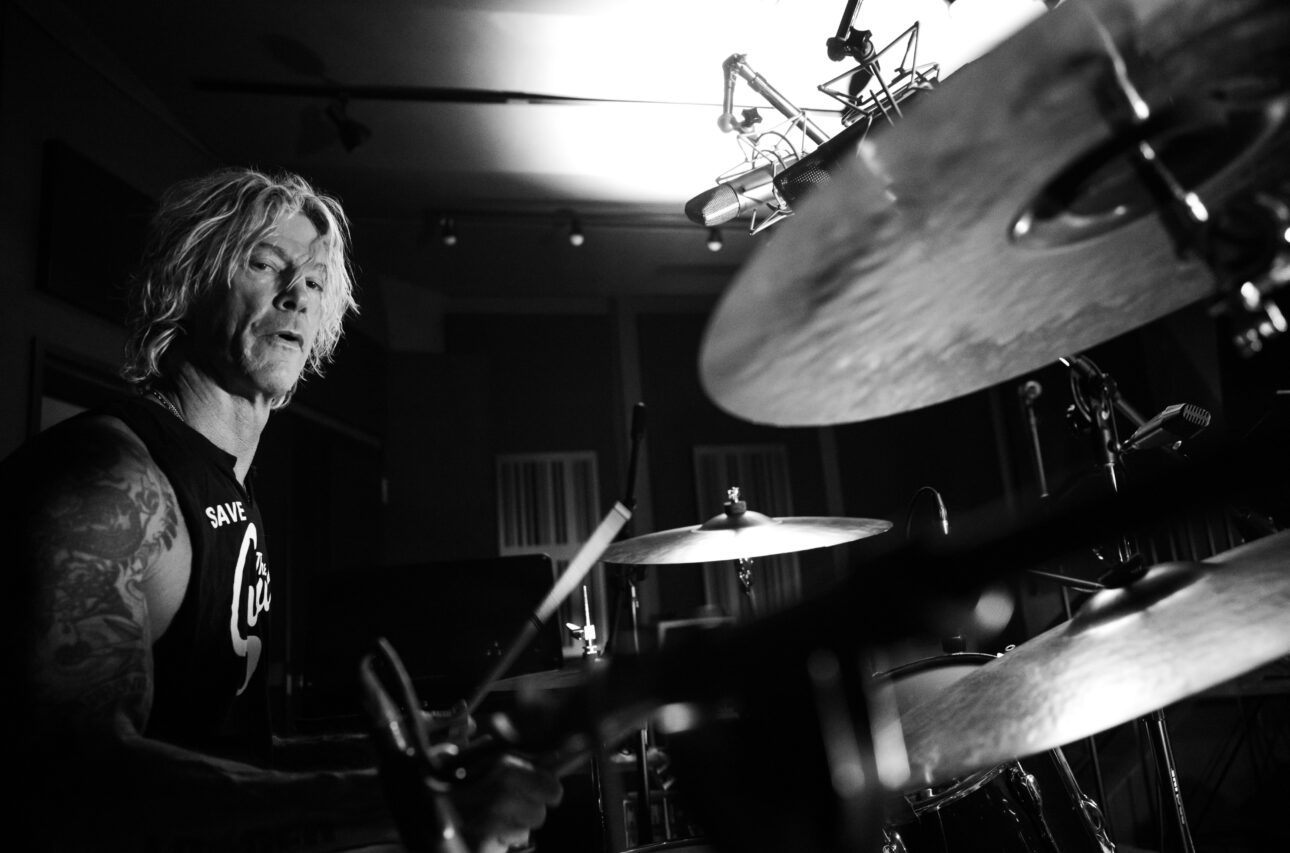
SPIN: Did your desire to make singer/songwriter albums begin with Tenderness?
Duff McKagan: I started to write like this around 2014. Then Guns went on tour [in 2016], so I didn’t have time to record these songs until 2019. After I recorded with Shooter and toured with his band [in 2019], it was the first time I delved into what’s become my favorite way to write songs, which is on acoustic guitar. I’ve always written on it, but with a mind for the song to be electric and faster. Now, I’m writing on acoustic at this tempo because it is where the song is going to be and I’ll fill everything else from there.
You then went back on the road with Guns N’ Roses from late 2019 to early 2020, when COVID was just starting to spread around the world.
Yeah. We got into rehearsals and had a sense of what was going on. We kept the doors of the rehearsal room open and started washing our hands up to our elbows. My nephew works at Harborview Medical Center in Seattle and told me this [virus] is different. We went and played our first show in Mexico City because, at that time, [COVID-19] was just in Seattle and Asia, not in Central and South America. It ended up being the last show on Earth.
How many songs did you write and record?
I had so many songs. As one month turned to two and turned to 16, I ended up with 60 songs.
With 60 songs written, why didn’t you release an album earlier?
I didn’t want it to be considered a COVID record, because it wasn’t. This record has a lot of reflection, but that’s what I do anyhow. Then finding a time to put it out when Guns isn’t touring is another tricky thing. This record came out on Oct. 20, and the Guns tour was supposed to end on Oct. 16 [laughs]. Axl likes it and was talking about it at the shows, which was very sweet of him.
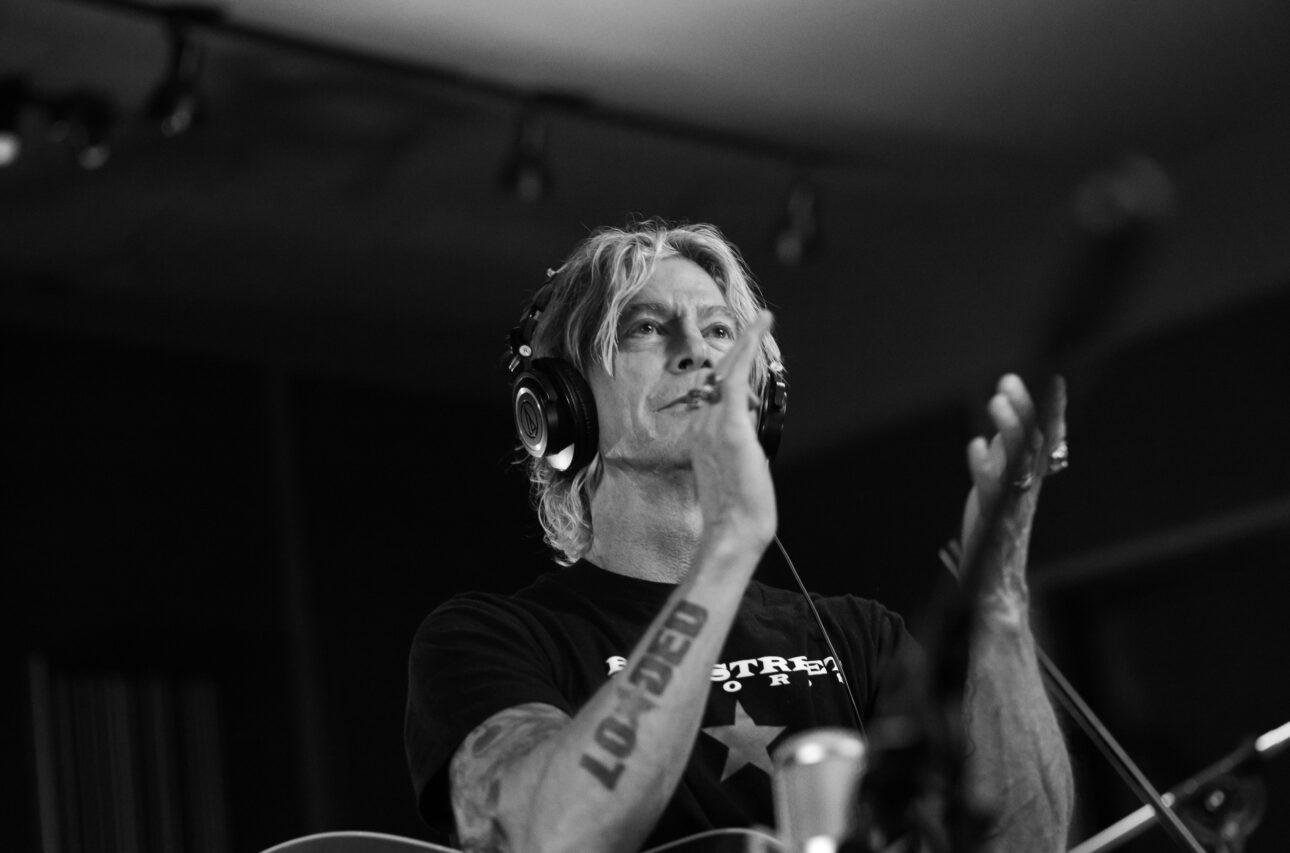
How did you distill Lighthouse down to 11 tracks?
I knew when I recorded ‘Lighthouse’ that I wanted it to be the first song on the album. When I got to ‘I Just Don’t Know,’ I knew it would be the last song. From there, I tried to fill it in, almost like a novel, with peaks and valleys and a story from beginning to end. I like to listen to records from cut one to the end. I grew up at a time when records took you through stories, and that’s what I tried to do with Lighthouse. I want to tell the truth, our truths. You don’t need a lot of fancy riffs and shit to get your message across.
Why didn’t the other songs work for this album?
I looked at those songs’ narratives and realized that I had another album that was a concept record. It was about getting fucked up and falling all the way in, kind of like the arc of my book [It’s So Easy: And Other Lies, McKagan’s 2011 autobiography]. There’s a song about a drug dealer called ‘I Found My Guy.’ That’s a record I could have put out as well. There may be another record next fall.
Are those songs mixed and mastered?
We’re still mixing them. But for this narrative, my thought was to have a song like ‘Forgiveness,’ because I’ve always been curious about other people. Every person has a story. For example, if you’re in an elevator with others, do you think you’re the most interesting person in that elevator? Oftentimes not. So for me, ‘Forgiveness’ is a commentary about how I stopped watching cable news in 2016 because I realized the divide they were trying to sell and it was fucking bullshit. When you go into a coffee shop in a small town in Kentucky or New York City, most people want to look for a little goodness and a little hope. I believe that to be true, and this divide was just a selling mechanism to keep you fucking locked into cable news. And it works. So, the song’s message is about forgiving each other and moving on.
Did you discover anything working with Shooter Jennings that you incorporated into your work with Martin Feveyear?
Shooter taught me how to play without thinking too much, going with intuition, and [the knowledge] that music doesn’t have to be perfect. He reminded me that if the intent is pure and the tempo is right and in tune, then let it go. Martin is a perfectionist. Shooter is not a perfectionist, but he goes on feel and gave me confidence in my range.
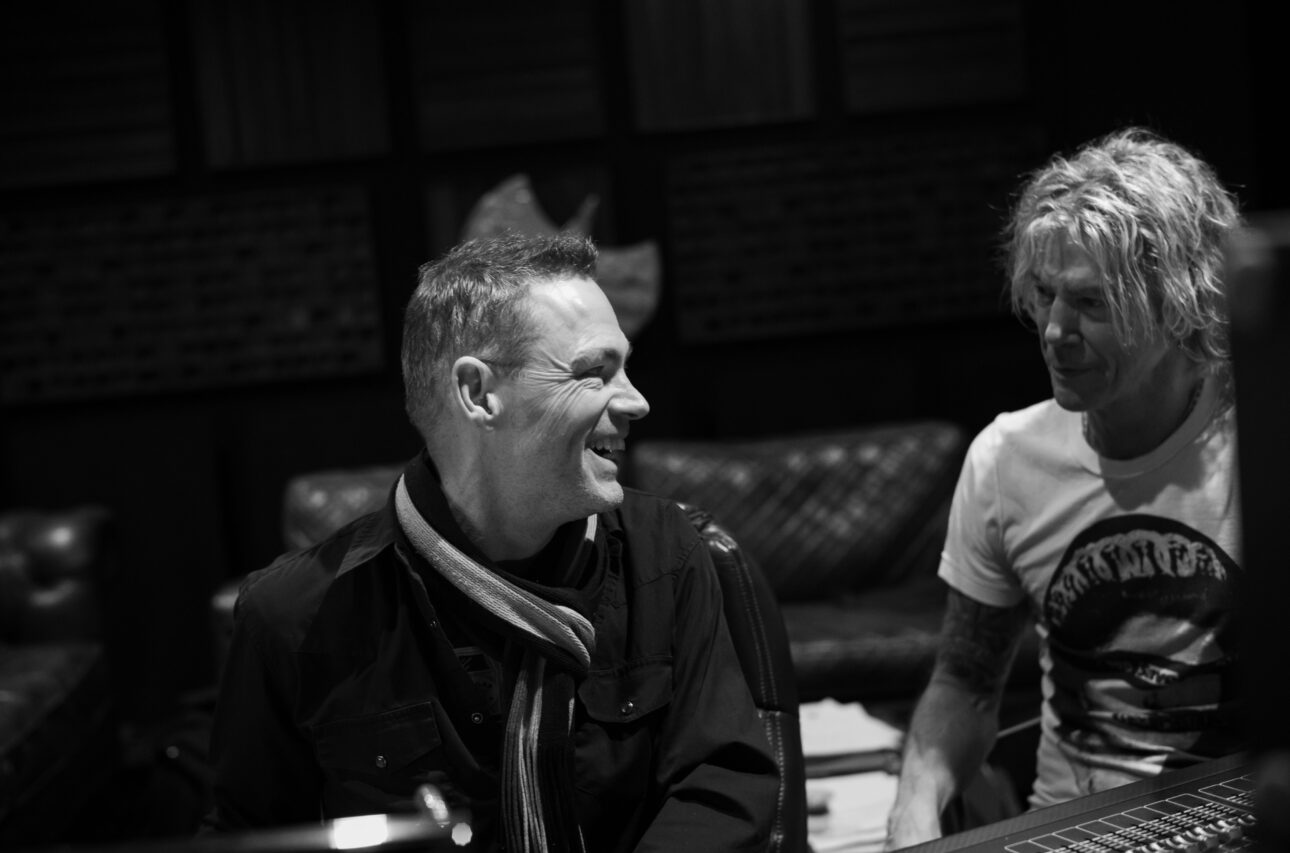
What was your reaction when Bob Dylan told the Wall Street Journal that the Tenderness song ‘Chip Away’ had ‘profound meaning’ for him?
The Bob Dylan thing was such an epic surprise to me. Imagine waking up one morning and having a link to a Bob Dylan interview in your email where he keys in on your songwriting! I work hard on my lyric writing and coupling a good turn of a phrase with a strong or unusual melody. The Dylan thing let me know, at least in his eyes, that I am on the right track.
What was it like recording and touring with Iggy Pop?
[Producer] Andrew [Watt], [Red Hot Chili Peppers drummer] Chad Smith, and I have a little group together. We did these two Ozzy [Osbourne] records, and we did it for Iggy, too. To do something like that with Iggy, who, for me, is one of my most influential people, along with (Mötörhead singer/bassist) Lemmy [Kilmister] and Prince … so, when he asked if we could be his band for these shows, we were all into it. To do those shows and rehearse with Iggy was like rehearsing with James Brown, I imagine. Do you know how many bands he has run in his career? Probably 150, I’m guessing. We wanted to be the best band Iggy ever had. I think there were moments where we achieved that at those gigs.
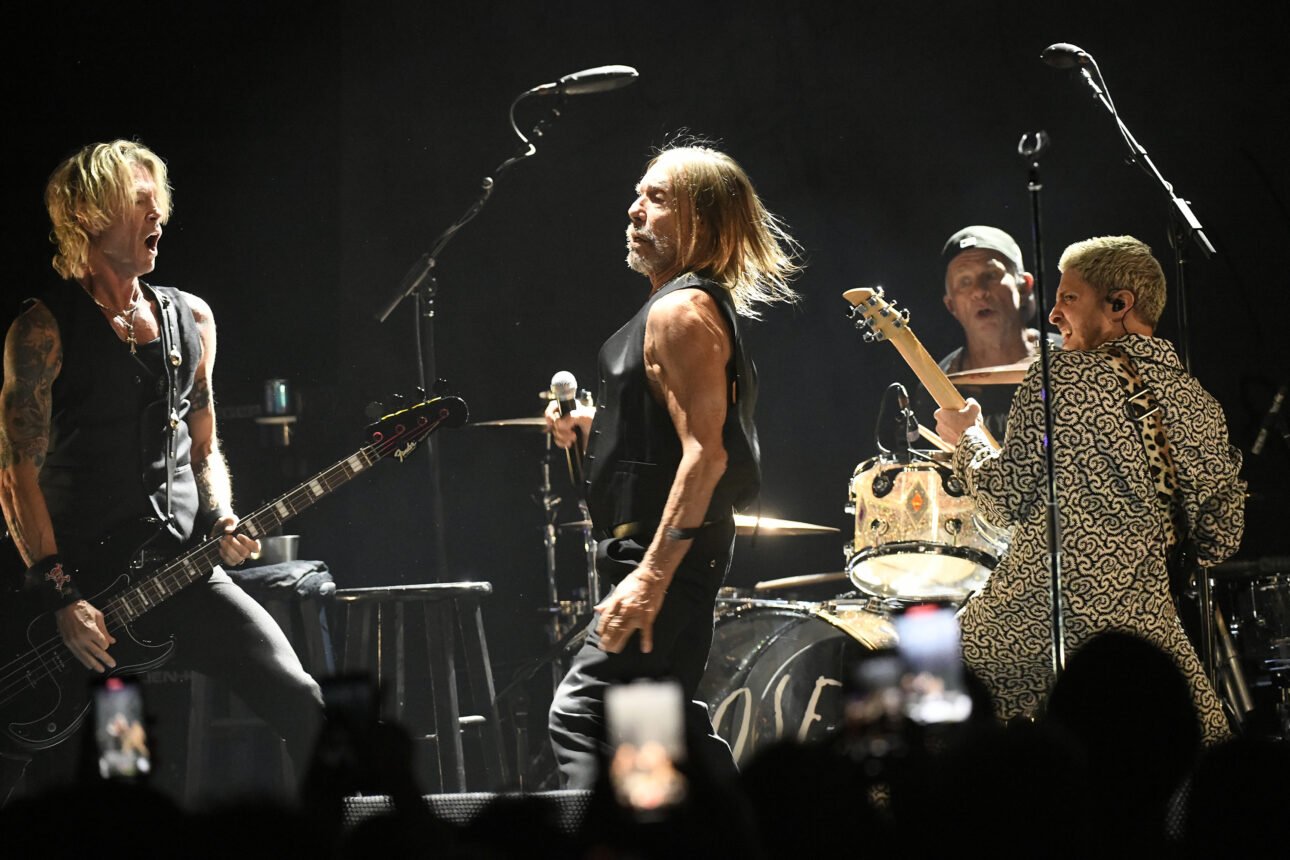
You appeared on his album and then he appeared on yours. How did that come about?
Somewhere in that timeframe, he asked if I wanted him to do something on my record. So our managers spoke and the next thing I knew, I had Iggy’s voice reciting ‘Lighthouse’ and it was shaking the speakers in my studio. I’d only heard that with Mark [Lanegan]’s voice. Then we put this beautiful music around it. We called it ‘Lighthouse (Reprise)’ and added synths.
How about working with Slash on ‘Hope’?
That song was actually recorded in 1996. All I did was sing it again. It was a song from a record that was shelved when Geffen was bought [in the late ‘90s]. Even though it was written so long ago, the words to ‘Hope’ fit this record. Listening to it again, I realized that [longtime Paul McCartney drummer] Abe Laboriel Jr. was on drums! And I recorded them myself on tape!
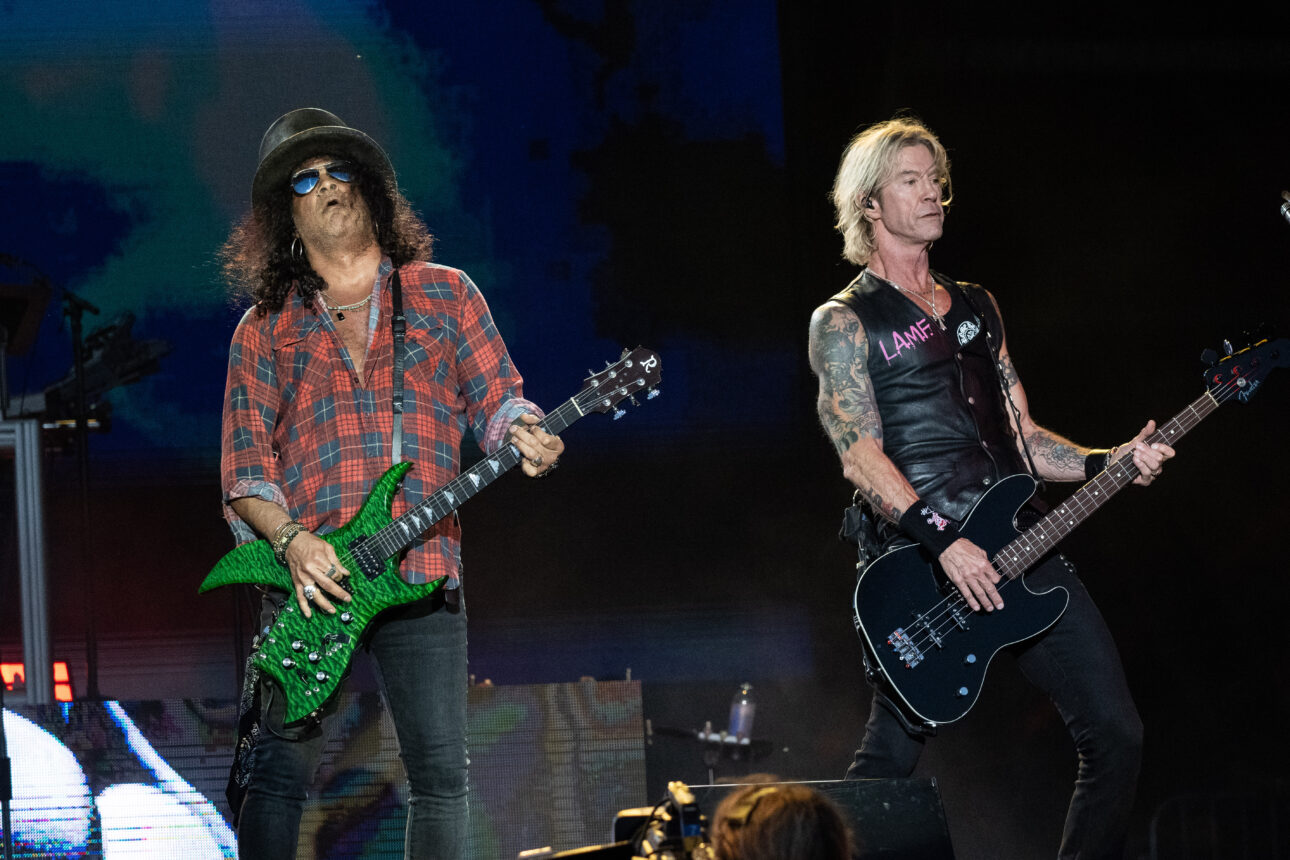
So you engineered the song as well?
Yes. When he came over to my house, I remember asking [Slash] if he wanted to play on that song. I had a guitar amp mic’d up and I knew how to record … sorta? But it sounded good!
Why did you choose to dig into the past and include ‘Hope’ on Lighthouse?
It just seemed to fit. The lyrics show that feeling of fear of what’s going on in the world was just as alive and well in 1996 as it is now.
How did Jerry Cantrell end up on the album?
He and I have been playing on each other’s demos for years and have known each other since around 1989 or 1990. We watch football together on Sundays and I played a lot of bass on his last solo album. I sent him ‘I Just Don’t Know’ and he was like, ‘Man, this is great. Do you want me to do anything on it?’ I said, ‘Yeah! A solo!’ He brought that beautiful solo and then asked if I needed him to sing, and I said, ‘Sure!’
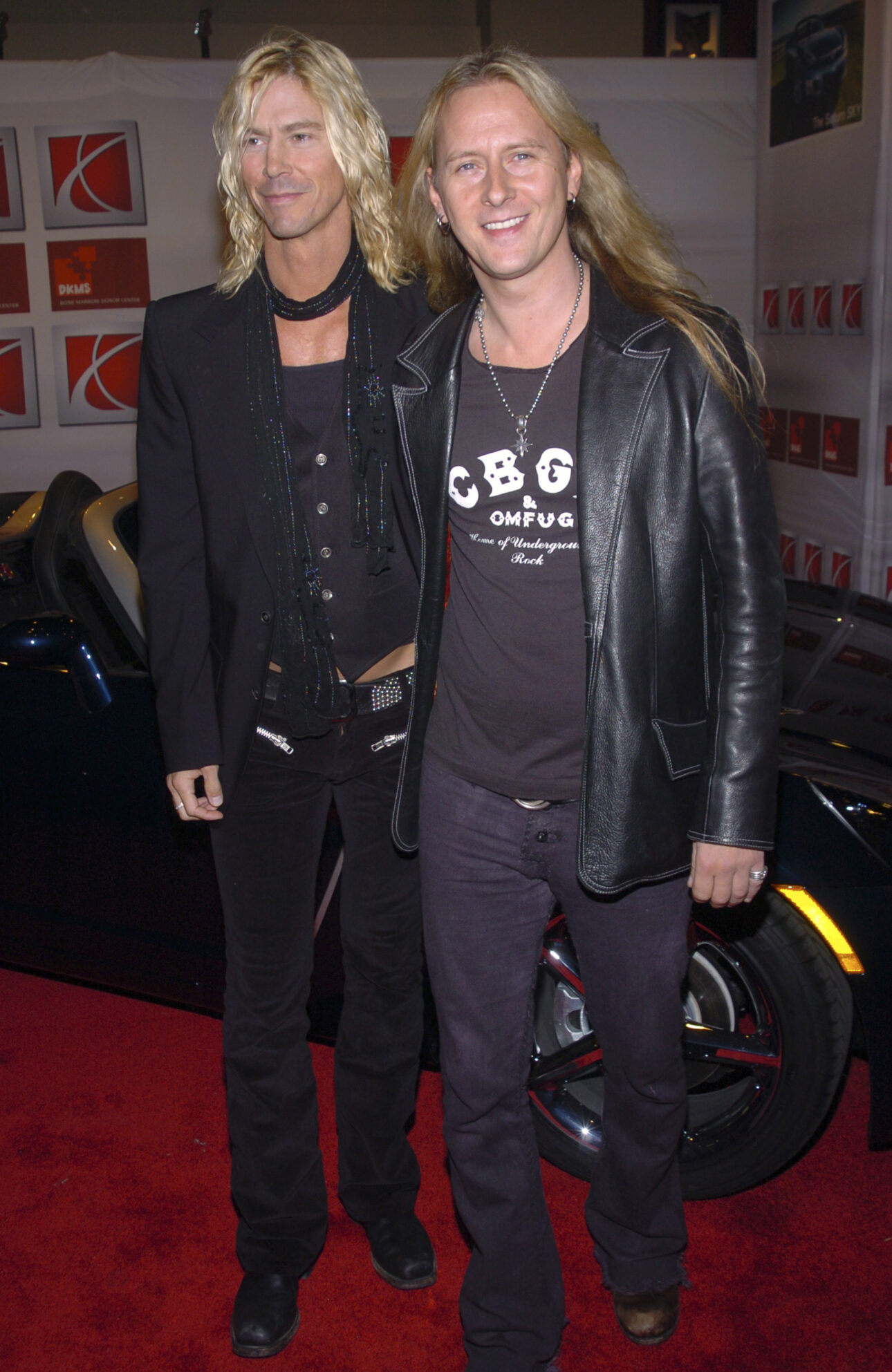
I read that you learned how to fingerpick by watching a video on YouTube?
Yes. I had a moment where I was like, ‘I want to learn how to fingerpick.’ I had been avoiding it for years. So I found a video of a guy doing it to [The Beatles’] ‘Blackbird.’ Once I got the rhythm in my right hand, it all fell into place. I had to practice for a bit then suddenly, I figured it out.
Have you often used YouTube as a resource that way?
Funny enough, in 2013, I was playing with Jerry, [Black Crowes guitarist] Rich Robinson, [Alice in Chains singer] William DuVall and [drummer] Barrett Martin for this Led Zeppelin tribute in Seattle. I didn’t know how to play like John Paul Jones and somebody said, ‘Just go watch YouTube!’ [laughs]. They said I should watch him play and that there were plenty of bass players who do that. So I went down a rabbit hole [laughs]. I wanted to be as good as John Paul Jones, if not better.
That’s always how I aim: to be the best. I always want to be the best I can be. When I put the band together for Lighthouse, I wanted it to be the best version it can be. Guns N’ Roses, same thing. We’re perfectionists and rehearse six hours a day for six days a week for a month before we go on tour. There could be a fucking storm or the power could go out. Nothing can freak us out.
Will you tour behind Lighthouse?
I’m not sure. I need to take some time off. I’ve been on the road for seven-and-a-half months and didn’t take a big break. It has been non-stop since 2021. But I need to take some time and put together a good band for that. Look, I love being the bass player and singing my best backing vocals in Guns. I love it. It’s a really solid thing to do and I try to be the best at doing it. But being the singer, playing the guitar, and where the lyrics are all 100% your own? It’s almost like doing a book reading where you’re singing. Performing Tenderness was so personal and it’s where I try to go with my solo stuff.
Link to the source article – https://www.spin.com/2023/11/duff-mckagan-lighthouse-interview/
Recommended for you
-
Behringer XENYX 302USB Premium 5-Input Mixer with Mic Preamp and USB/Audio Interface
$69,00 Buy From Amazon -
Blessing Alto Horn (MPC7FL)
$36,95 Buy From Amazon -
PreSonus AudioBox 96 25th Anniversary Studio Recording Bundle with Studio One Artist DAW Music Production Software
$0,00 Buy From Amazon -
Lyre Harp, AKLOT 16 Metal Strings Mahogany Body Lyra Harp with Maple Saddle Carved Note Tuning Wrench Pickup Strings and Black Gig Bag
$79,99 Buy From Amazon -
D’Addario Accessories Guitar Humidifier System – Humidipak Maintain Kit – Automatic Humidity Control System – Maintenance-Free, Two-Way Humidity Control System For Guitars
$24,99 Buy From Amazon -
LEKATO Percussion Sample Pad, Electric Drum Pad with 9 Velocity-Sensitive Drum Pad, 592+ Sounds, Electronic Drum Set Pad Multipad with MIDI out, USB MIDI, AUX, Looper, Metronome, Trigger inputs
$279,99 Buy From Amazon -
New bee Guitar Cable 10ft Electric Instrument Bass AMP Cord for Electric Mandolin, Pro Audio (Right Angle to Straight, Black)
$9,99 Buy From Amazon -
MUSTAR Soprano Ukulele Kids Ukulele for Beginners – 21 Inch Small Guitar Ukulele for Kids Toddlers Birthday Holiday, Gig Bag, Digital Tuner, Strap, Picks All in One Kit, Kids Christmas Gifts
$39,99 Buy From Amazon
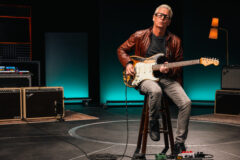













Responses